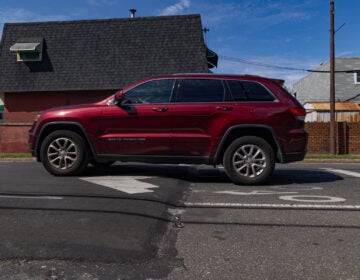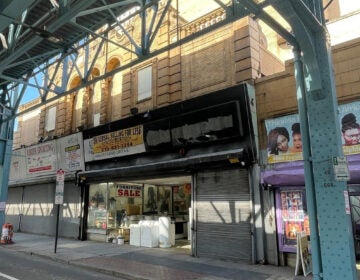As Nutter weighs decriminalizing pot, arrests continue in cities with similar law
ListenAs pressure mounts for Philadelphia Mayor Michael Nutter to sign a bill passed by City Council decriminalizing the possession of about an ounce or less of marijuana, Police Commissioner Charles Ramsey is remaining firm in his pledge not to enforce it should it become law.
Philadelphia’s police department is far from the only force that has not embraced decriminalization. According to experts in marijuana policy, many local law enforcement agencies across the country have butted heads with lawmakers over their efforts to loosen pot laws.
More than 100 U.S. cities have reduced penalties for possession of small amounts of pot, according to Rachelle Yeung, a legislative analyst at the nonprofit Marijuana Policy Project, which supports full legalization.
Simple possession remains a criminal offense in most of those cities’ home states, however, leaving individual police officers to decide whether to ticket offenders or arrest them. Yeung said police often choose the latter.
“The pattern we’ve seen amongst law enforcement is that they have continued to enforce what remains to be the state law of criminalizing marijuana,” she said. “It is unfortunate because they’re not really respecting, in many cases, the wishes of the people they’re supposed to serve and protect.”
Kathleen Kane-Willis, director of Roosevelt Univesity’s Consortium on Drug Policy, looked specifically at municipalities in Illinois that have given police have the option of ticketing offenders instead of charging them with a crime.
“You assume, when there’s a policy, that there’s going to be implementation of that policy,” she said. “We found examples in Illinois where cities have passed the policy and never given out tickets. In Chicago, very few tickets are given out.”
After a decriminalization bill passed in Chicago, Kane-Willis said 93 percent of marijuana possession offenses in the city still ended in arrests. In fact, she said, “We found that most of the arrests were occurring in majority-minority neighborhoods with very low income levels, and that actually since the ticketing ordinance was passed, some of those areas had increases in arrests instead of decreases.”
News reports also indicate that police in cities such as Portland, Maine, Columbia, Missouri, and Flint, Michigan have, at least initially, pushed back against attempts to curtail pot penalties.
Not all police departments have fought decriminalization, though. The Illinois cities of Champaign, Evanston and Countryside were more likely to ticket people for marijuana possession than arrest them, according to Kane-Willis’ study.
Though her research shows mixed results from decriminalization, Kane-Willis said Philadelphia’s bill is a “step in the right direction.”
“But my tagline would be, ‘The devil is in the details,'” she said. “Having a system in place that is clear and could be measured and lays out exactly how these tickets are going to be given and incentivizing that, is going to be the difference between passing an ordinance that means something and passing something that is just in words only.”
Councilman James Kenney, who sponsored the Philadelphia legislation, said police would gladly enforce it if they were told to do so by their superiors and properly trained.
“For a dime bag of marijuana, they have to do an hour report in writing, and it takes time off of the street for them,” he said. “Officers on the line are happy that this is potentially going to be taken out of their requirements.”
Ramsey has said he is concerned that Council’s bill contradicts state law, under which possession of small amounts of marijuana is punishable by jail time. Ramsey also argues that there are unanswered questions about how the city would implement the bill.
Nutter has until Sept. 11 to decide whether to sign the legislation.
WHYY is your source for fact-based, in-depth journalism and information. As a nonprofit organization, we rely on financial support from readers like you. Please give today.














